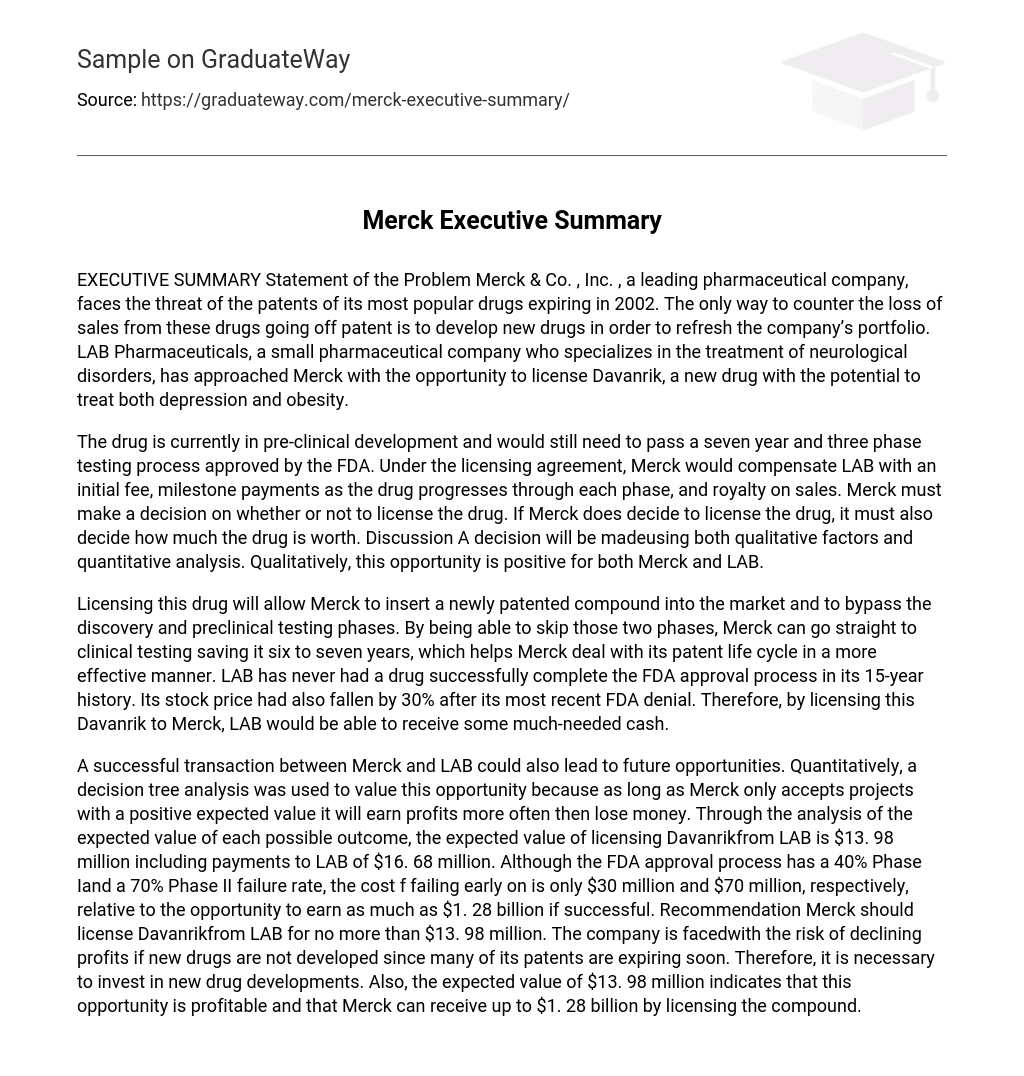EXECUTIVE SUMMARY Statement of the Problem Merck & Co. , Inc. , a leading pharmaceutical company, is confronted with the imminent expiration of the patents of its most popular drugs in 2002. To mitigate the decline in sales resulting from these drugs losing patent protection, the company must create new drugs to refresh its portfolio. LAB Pharmaceuticals, a specialized small pharmaceutical company focusing on neurological disorder treatment, has proposed to Merck the option of licensing Davanrik, a recently developed drug with potential application in treating both depression and obesity.
The drug is currently in pre-clinical development and would need to undergo a seven-year testing process, consisting of three phases. All three phases must be approved by the FDA. According to the licensing agreement, LAB would receive compensation from Merck which includes an initial fee, milestone payments based on the drug’s progress in each phase, and a royalty on sales. Merck now needs to determine whether or not to obtain a license for the drug and assess its value. This decision will consider qualitative factors as well as quantitative analysis. From a qualitative perspective, this opportunity seems beneficial for both Merck and LAB.
By licensing this drug to Merck, LAB can bypass the discovery and preclinical testing phases, allowing Merck to insert a newly patented compound into the market. This will save Merck six to seven years in the clinical testing process, helping them effectively manage their patent life cycle. LAB, in its 15-year history, has never successfully completed the FDA approval process for any drug. Additionally, after the most recent FDA denial, LAB’s stock price fell by 30%. Thus, by licensing Davanrik to Merck, LAB will receive much-needed cash.
A successful transaction between Merck and LAB could also lead to future opportunities. Quantitatively, a decision tree analysis was used to value this opportunity because as long as Merck only accepts projects with a positive expected value it will earn profits more often than lose money. Through the analysis of the expected value of each possible outcome, the expected value of licensing Davanrik from LAB is $13.98 million including payments to LAB of $16.68 million. Although the FDA approval process has a 40% Phase I and a 70% Phase II failure rate, the cost of failing early on is only $30 million and $70 million, respectively, relative to the opportunity to earn as much as $1.28 billion if successful. Recommendation: Merck should license Davanrik from LAB for no more than $13.98 million. The company is faced with the risk of declining profits if new drugs are not developed since many of its patents are expiring soon. Therefore, it is necessary to invest in new drug developments. Also, the expected value of $13.98 million indicates that this opportunity is profitable and that Merck can receive up to $1.28 billion by licensing the compound.





